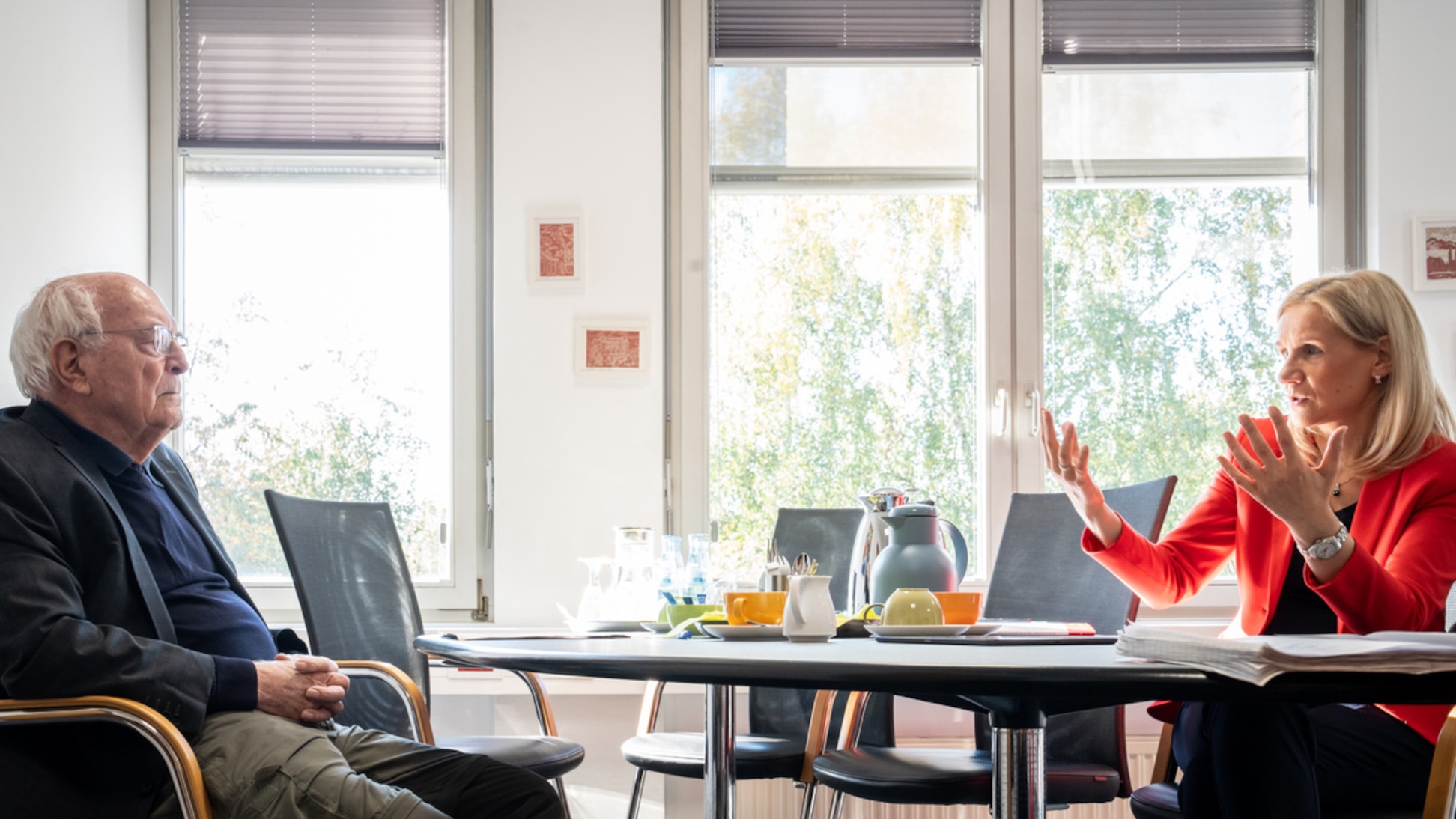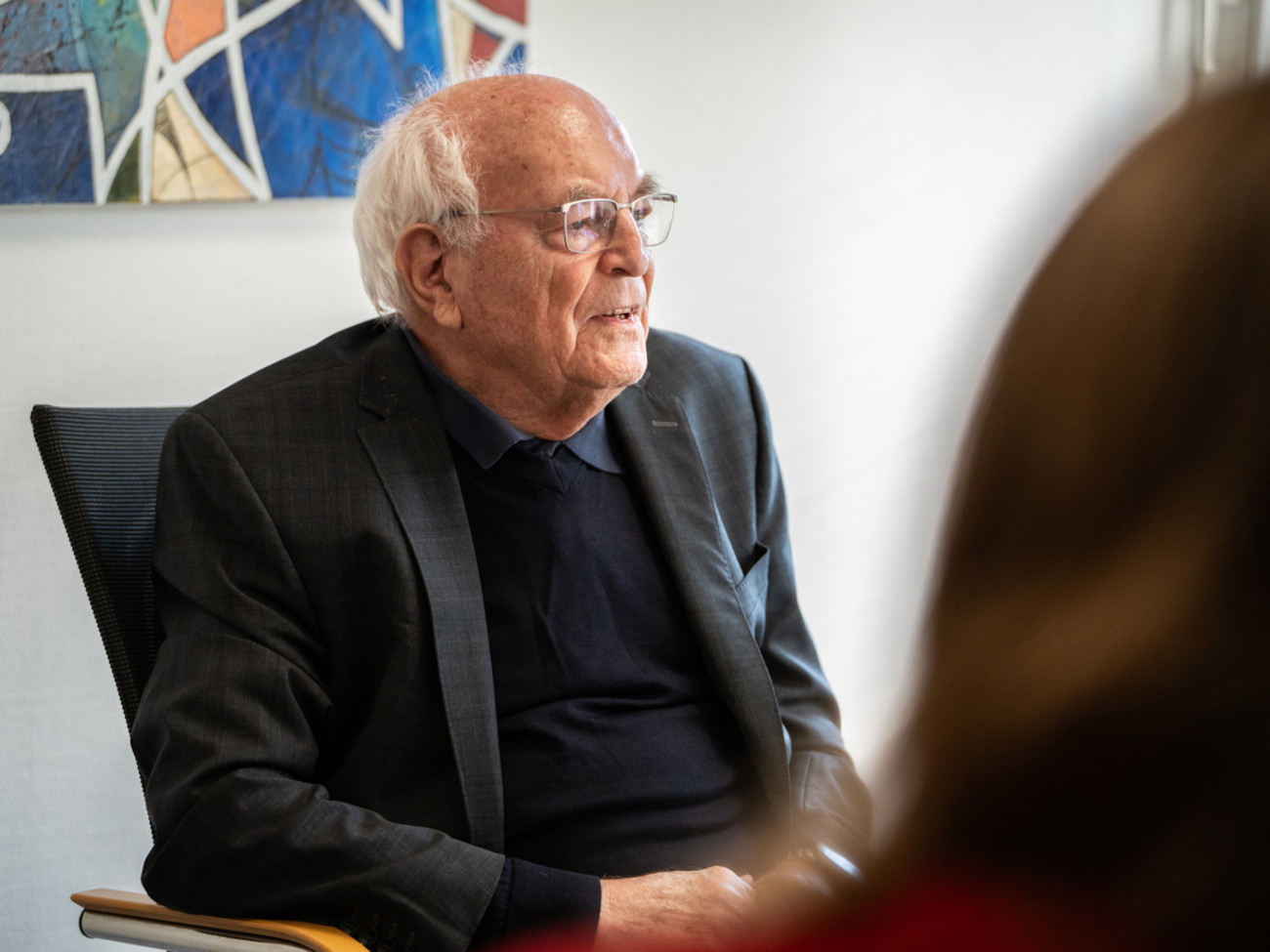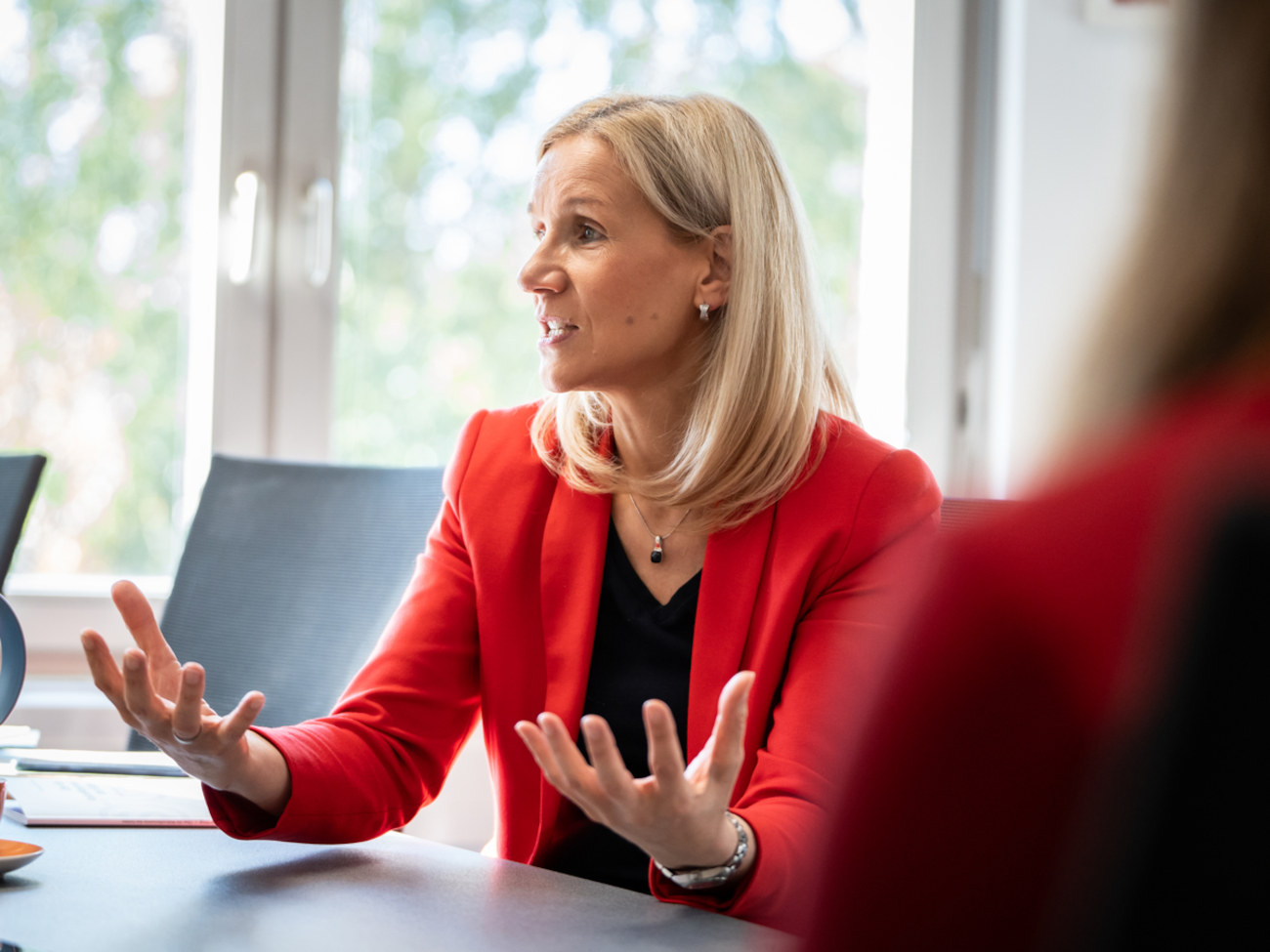
© Universität Bremen / Annemarie Popp
From Groundbreaking to Excellence
Conversation between Jutta Günther and Thomas von der Vring
When he became president of the University of Bremen in 1970, a large part of today’s campus still consisted of farmland. She is now president of a university with over 18,000 students. A conversation with founding president Thomas von der Vring and the current president, Jutta Günther
Mr. von der Vring, how did you become president of the University of Bremen? Ms. Günther, what motivated you to take up this position today?
Thomas von der Vring: In 1968, after I had just habilitated in political science, some students from the University of Bremen’s founding senate approached me. They asked me if I could imagine becoming president of the university. I was already somewhat better known at the time in my role as Jusos Deputy Federal Chairman. After a short debate in the founding senate, I was appointed for two years. In the end, it turned out to be six.
Jutta Günther: I first got to know the University of Bremen as an academic. Ten years ago, I came here as a professor of economics. In the beginning, I only worked in academia and set up a research group. I, however, became increasingly interested in higher education policy and initially became a member of the Academic Senate, then Vice President for Research. When my predecessor Bernd Scholz-Reiter’s term of office ended, I put myself forward. The opportunity to shape the development of the university in this way fascinated me. I have the distinct impression that the university suits me and I suit it.
What challenges were there in the founding period of the university and which ones are there today?
Thomas von der Vring: Back then, our main priority was opening up the university. Bremen’s parliament had already decided to establish the university in 1961 and almost ten years later, we had to go to work. Planning buildings and hiring employees was a major part of this. And then I also had to get involved in the election campaign because the construction of the university was a central issue in the 1971 parliament elections. The CDU opposed the project while the SPD argued that having a university in Bremen could allow young people from socially weaker neighborhoods such as Gröpelingen to study. In the end, the SPD clearly won the election, with the best result in its history in Bremen. At the time, the work was very stressful but also characterized by a great spirit of optimism.

© Universität Bremen / Annemarie Popp
Jutta Günther: Today, the university has a good standing in both research and teaching, as well as in comparison to other universities. We were successful in the German federal and state government’s Excellence Strategy with “The Ocean Floor – Earth’s Uncharted Interface” Cluster of Excellence. We have applied for a continuation of this cluster in the current round of the Excellence Strategy together with the University of Oldenburg. A proposal for a new cluster: “The Martian Mindset: A Scarcity-Driven Engineering Paradigm” has also been submitted. Depending on the success of the cluster applications, we are also planning a joint University of Excellence application with the University of Oldenburg. This is a central focus of my daily work. But in the end, it is always the combined strength of the university as a whole that qualifies us for such competitions and makes us successful.
The University of Bremen was founded as a reform university. Where can this been seen – both then and now?
Thomas von der Vring: The university was intended to be open to everyone and we took this quite literally by making almost all rooms freely accessible. I did, however, make sure to keep the isotope laboratory closed, otherwise it would have become too dangerous. In teaching, interdisciplinarity was important from the beginning. For example, we had a faculty that was made up of law, social sciences, and economics. We completely redesigned the law degree program, with a two-semester introductory course that covered the contents of the entire faculty. Our focus was on problem-solving behaviors, not dull memorization. Unfortunately, these changes were undone by the politics of the 1980s. Nevertheless, our agenda remained focused on having teachers from different disciplines hold courses together….
Jutta Günther: … and much of this remains to this day. Interdisciplinarity is at the heart of the University of Bremen’s DNA. The fact that a humanities scholar and an engineer teach and research together here is not a peculiarity. In my research, I have also worked a lot with researchers from the engineering sciences on energy systems and energy efficiency. The openness that Herr von der Vring describes from the founding period is still very important today. In a world in transition, we stand firmly for democracy, diversity, and open-mindedness.

© Universität Bremen / Annemarie Popp
Forum at Domshof is the university’s first building in the city center. Was such a central location taken into consideration when the university was founded?
Thomas von der Vring: No, it was planned from the outset to set up the university as a campus university outside the center. Practical orientation during a degree was very important to us, and it was already envisaged at the time that companies would settle near the university.
Jutta Günther: Which has been successful. The Technology Park next to the university now has more than 500 companies and around 15,500 employees. In addition to the spatial proximity to practical application opportunities, research-based learning and practical relevance are still core elements of the University of Bremen today. We are very proud of these connections and everything that has been achieved in the last 50 years; so I can only thank Mr. von der Vring and all those who laid the foundation for our university.